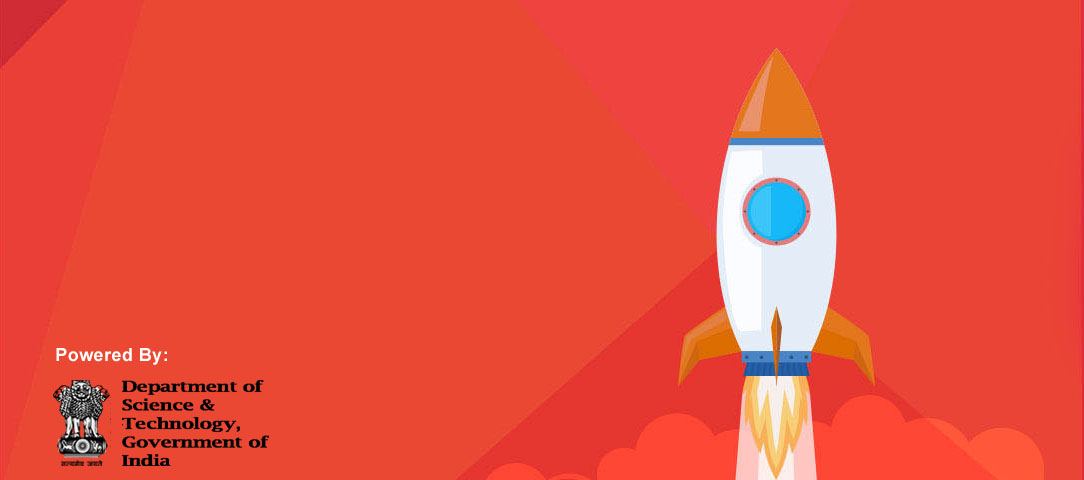

Are you looking to grow your startup into a scalable and viable venture?
Is AgriTech or FinTech your area of focus?
In collaboration with
PI Industries and Fidelity Investments
Applications for Launch-n-Zoom accelerator program are closed


Are you looking to grow your startup into a scalable and viable venture?
Is AgriTech or FinTech your area of focus?
In collaboration with
PI Industries and Fidelity Investments
Applications for Launch-n-Zoom accelerator program are closed
About the Program
Launch-n-Zoom supported by NIDHI Seed Support and our corporate partners is a three month accelerator program with an unique opportunity for the entrepreneurs to scale and grow their ventures with the help of our mentors, industry experts, and corporate partners. We as a team, will try and tailor the program to your unique needs and help in your venture’s growth.
Who are we looking for?
We invite technology-backed startups (pre-seed, seed, and growth stage) offering solutions to tackle challenges in the agritech and fintech sector.
Program Highlights

PI Industries Limited is an agri-sciences company.
Investment opportunities up to rupees 20 lakhs for qualified startups.

Fidelity Investments is one of the largest financial services companies in the world.
What does startup get
Market Validation
If you qualify for this program, it means that your innovation has a significant market relevance since it aligns with the innovation needs as defined by our corporate partners who have rich experience and are aware of the current trends in the market. Startups may get pilot opportunity with our corporate partner.
Funding
As part of graduation, IIMUIC can invest up to INR 20 lakhs in some of the qualifying ventures. As part of this program, we will also present your story to our investment partners for their consideration to co-invest with IIMUIC (If you have received seed fund from a similar government scheme, IIMUIC cannot make seed investment in your venture).
Network.
IIMUIC has one of the best networks of industry leaders, investors, mentors, and subject matter experts. It’s a great opportunity to learn from such experts most of whom have been on a similar journey and have been successful. You’ll be working with other startup founders who are all at a similar stage like you. Working with a similar cohort and experiencing and solving similar challenges will make this program a great experience.
Mentorship
Relevant tailored mentoring on areas relevant to your needs like GTM, technology, customer acquisition etc offered through our corporate partners, our mentors and investor partners.
Industry partnership
IIMUIC has partnered with PI Industries Ltd and Fidelity Investments so that their experts can help with technology support, an environment to develop and test your prototypes, develop go to market strategies and explore probable opportunities within their customer base. This partnership will also allow our corporate partners explore strategic partnerships with participating ventures and further enhance your investment oppurtunities.
Incubation Support
IIMUIC provides co-working spaces all with all the facilities required to run your business seamlessly. We provide business mentoring, legal and accounting support, technical support and labs for rapid prototyping—plus other credits and perks such as AWS, Zoho credits, Razor pay credits etc.
Program Timeline

Applications Open
27 th Aug, 2021

Applications Close
3 rd October 2021

Application Screening
3 rd Oct, 2021 - 15 th Oct, 2021

Result Announcement
15 th Oct, 2021

Cohort Starts
25 th Oct, 2021
Innovation Ask
Agritech
Problems:
- Inadequate data on supply-demand of inputs due to limited digitization results in high volatility of prices.
- Farmers typically rely on inputs from retailers on which fertilizers or pesticides to purchase, resulting in excessive or sub-optimal use of elements.
Solutions seeking:
Solutions which enable farmers to purchase farm inputs such as seeds and agrochemicals directly through online marketplaces.
- Mobile App for allowing the farmers to calculate the economics of production with different levels of investments in inputs and the risk associated with each level..
Problems:
- Mechanisation is critical to perform farm operations in time, decrease cost of operations, reduce drudgery, increase the input efficiency, and improve yield and quality of the produce.
- Mechanisation technologies need to be climate resilient and aspirational for small holders to manage agriculture as a business.
Solutions seeking:
- Online platforms which bridge the demand and supply gap of machinery or equipment requirements by connecting owners of tractors and farming equipment with those who require their services.
- Offer farm equipment for rent on a pay-per-use basis.
Problems:
- Low technology and data access along the agriculture value chain leads to limited visibility to farmers regarding crop yield and soil productivity.
- Traditional farming techniques lead to soil degradation over the years that can be monitored with technology.
- Crop selection is mainly based on what farmers used to sow historically or based on anecdotal data on which crops are expected to yield higher in the given year
Solutions seeking:
- Precision farming technologies to monitor crop growth and health to deliver actionable intelligence to reduce the crop loses.
- Use of geospatial/weather data, IOT, sensors, robotics etc. to deliver real-time insights for better farm level decision making right from land preparation to harvesting.
- Simplified, sensor-based quick testing method to test nutrients and micronutrients in soil.
Problems:
- Traditional models do not offer large scale quality testing within quick turnaround times.
- Absence of digitization in traditional models makes it challenging for food processing companies and exporters to map a farmer’s produce to its quality.
Solutions seeking:
- Offer quality testing of agricultural produce through imagery-based technology such as Optical Character Recognition (OCR) embedded in mobile applications to assess the farm output quality externally, chemical analysis using dedicated hardware to detect chemicals such as pesticides, and hyperspectral analysis to test internal damages in the produce.
- Offer SaaS based platforms to trace produce across the post-harvest value chain.
Problems:
- Lower realization rates for farmers due to uncertainty in demand resulting in inefficient cropping cycles.
- Higher cost of procurement for retailers due to the numerous intermediaries in the value chain, as well as higher wastage due to lack of access to infrastructure such as cold storage facilities in the value chain.
- Low farm income due to lack of price discovery platforms. Traditionally crop selection is based on what farmers used to sow historically or based on informal data on which crops are expected to yield higher returns in the given year.
- Limited access to on farm postharvest value added primary processing technologies for better price realisation.
Solutions seeking:
- Innovations for improving the shelf life of produce and enhancing the holding capacities of small holder farmers through decentralized, affordable, and modular energy efficient storage facilities for perishable and non-perishable commodities.
- Digital platform and physical infrastructure to handle post-harvest supply chain and connect farm output with the customers.
- Price forecast system for farm produce to facilitate better decision making with respect to which crop to grow.
- Environment-friendly cost-effective mobile technologies at the farm gate for processing and value addition.
Problems:
- Crop residue burning damages soil nutrients, organic quality of the soil, solubility capacity and micro-organisms in the upper layer and leads to environmental pollution and adds the layer of impenetrable ash at the field level.
Solutions seeking:
- Low-cost mechanism to identify and aggregate crop residue at farm
- Technological interventions to convert crop residue into value added products at farmgate
- Ex-situ and in-situ management of agri-residues for enhancing and protecting soil health.
Problems:
- Lack of knowledge on financial safety and access to financial services that could fulfil needs of small holder farmers is creating a negative financial impact on the farmers.
- Limited digitization makes it challenging for financial services players to offer their solutions to small and marginal farmers
Solutions seeking:
- Innovative and affordable financial services to enable access to loans/credit facilities for input procurement, equipment, etc.,
- Innovative insurance/ reinsurance solutions for crops and farm equipment.
- Digital agriculture platforms for dissemination of information to the last mile such as best practices of growing crops, scheme information, and handholding support for availing benefits under different government schemes.
Fintech
Problems:
- Limited digital and financial knowledge lead consumers to making a lot of poor financial decisions, whether it's getting into too much debt, overspending or making bad investments.
- Retail customers have different investment priorities in different life stages that are unutilized.
Solutions seeking:
- Autonomous financial solutions that use AI, machine learning and other automation algorithms to make optimal financial decisions for customers without needing the direct input.
- Data analytics solutions to promote tailored financial products, investment opportunities, insurance plans, etc. based on consumers’ lifestyle and preferences.
Problems:
- Customers cannot find a place to have an aggregated view of their own financial products and services.
Solutions seeking:
- Digital solutions that help customers to have a consolidated view of their financials across area like cash management, tax, loans, bills, investment, and insurance to make more informed financial planning decisions.
Problems:
- Lack of simple, holistic, embedded, and direct experiences for end customer resulting in low customer satisfaction.
Solutions seeking:
- Banking API’s or BaaS infrastructure solutions that open up additional revenue streams for banks and reinvent the services they offer to their customers.
Problems:
- Banking, remittance, investment, and insurance services are often out of reach of individuals from low-income families or migrant workers. Having access to financial services will improve employee welfare and the lives of such vulnerable parties, while reducing risks associated with the informal sector.
Solutions seeking:
- Digital / mobile solutions (e.g., micro-finance, micropayments, micro-pension, micro-insurance, microsavings, and microinvestments.) that offers banking, investment, insurance, and other financial services to the vulnerable parties in a cost effective and a convenient way.
Problems:
- SMEs are unable to open bank accounts quickly to get their business off the ground by allowing them to start receiving and making payments.
- SMEs often encounter difficulties getting financing (whether working capital or trade finance) and have to approach multiple funding sources, which can be very time-consuming and costly for SMEs.
Solutions seeking:
- Create a streamlined and efficient digital solution for banks to collect the required account-opening information from SMEs that provide SMEs with basic banking services sufficient f to get their businesses up and running.
- Create a digital platform that allows SMEs to seek debt financing easily and quickly from lenders such as banks or corporate sectors in a one-stop shop, without the need to individually reach out to multiple potential lenders separately.
FAQs
The venture should be a registered company in India.
The venture has to be an Indian start-up. This support is not meant for Indian Subsidiaries of MNCs/foreign companies. Persons holding Overseas Citizens of India (OCI), Persons of Indian Origin (PIO) would be considered as Indian citizens for the purpose of this scheme.
The shareholding by Indian promoters in the startup should be at least 51%.
Selected start-ups should become a incubatee of IIMUIC and should have completed three months of incubation at IIMUIC at the time of seed fund investment.
Our Partners











Contact Us
If you have any query please drop us a mail at incubation@iimu.ac.in we would be happy to assist you.
